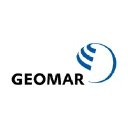

The
Sign up for free.

The GEOMAR Helmholtz-Zentrum für Ozeanforschung Kiel is one of the world's leading institutions in the field of marine research. Based in Kiel, Germany, GEOMAR studies the global ocean from the seabed to the atmosphere, covering a unique spectrum of physical, chemical, biological, and geological processes.
GEOMAR focuses on four central research areas:
The mission of GEOMAR is to contribute to the understanding of the oceans and their role in the global system through comprehensive research. The institute is committed to the study of the seas and the atmosphere, aiming to gain scientific insights that contribute to the sustainable use and protection of marine resources. GEOMAR also advocates for equal opportunities for women and men in the workplace and has received the Total-E-Quality award since 2017[3].
GEOMAR makes significant contributions to several United Nations Sustainable Development Goals as well as to the Decade of Ocean Science for Sustainable Development. It is involved in the program-oriented funding of the Helmholtz Association under the program "Changing Earth - Sustaining our Future" in the research area of Earth and Environment. Additionally, GEOMAR focuses on sustainable infrastructure, such as the new research and administration building, which meets high standards for energy consumption and sustainability[2][4].
GEOMAR has a modern and powerful research infrastructure, including its own research vessels such as the Alkor, Littorina, the research boat Polarfuchs, and the manned research submersible Jago. The institute also operates deep-sea robots like the ROV Kiel 6000 and the ROV PHOCA. A central sample storage facility (ZPL) is used for the storage of marine core samples under cooled conditions[1][2].
GEOMAR offers various training and study opportunities, including internships in aquaristics, science, and technology, as well as five different vocational training programs. It is also involved in internationally oriented degree programs in marine sciences in cooperation with the Christian-Albrechts-University of Kiel. Doctoral candidates receive guidance for their career paths[3].
GEOMAR is funded 90% by federal funds and 10% by state funds from Schleswig-Holstein. It has an annual budget of approximately 89 million euros and employs around 1000 staff, including about 500 scientists[1][4][5].
GEOMAR is a significant contributor to the scientific community and presents itself as a lighthouse project in marine research through its comprehensive research activities and sustainable initiatives.